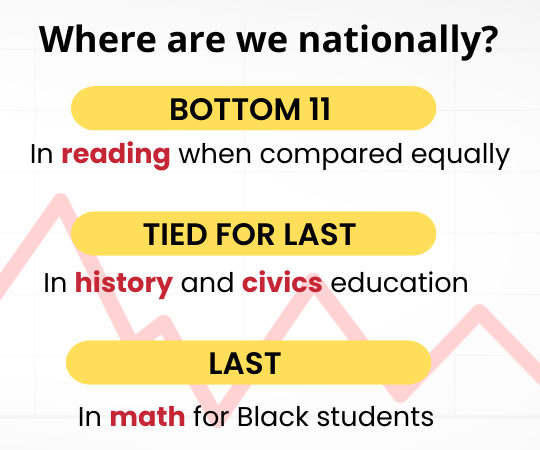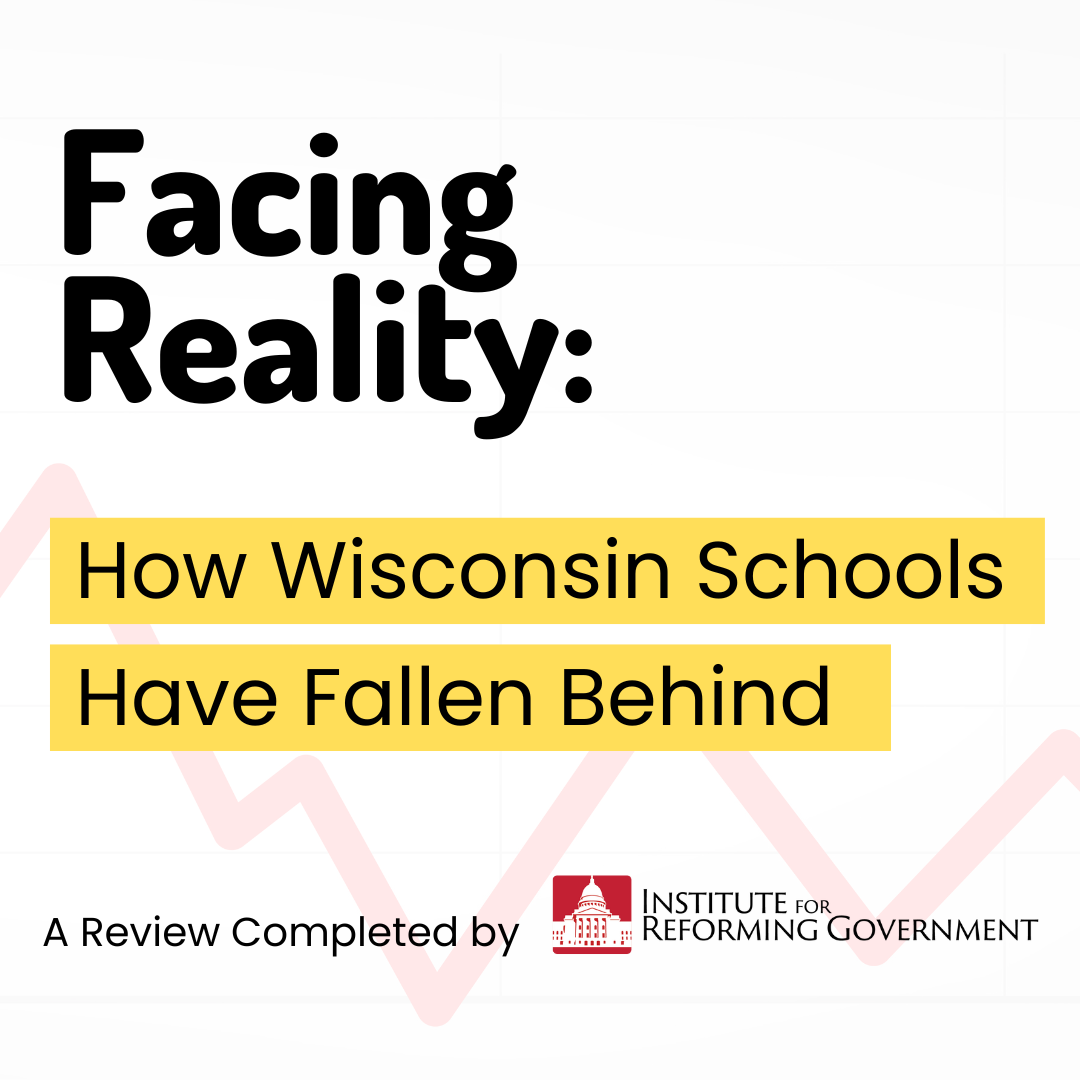As Wisconsin students head back to the classroom this month, parents face a stark reality: other states handled COVID better and our kids are now way behind. Our top students no longer compare to the nation’s best, and even more troubling, our struggling students face greater challenges than ever.
How bad is the problem?
Well, what have you got? Our team of policy experts here at IRG has sifted through mountains of data and what we’ve found will absolutely SHOCK you.

Just in time for the first school bell, our team has gathered everything that you need to know about what’s happened in our schools. Pulling data from dozens of sources, this back-to-school snapshot has truly staggering findings about how leaders have failed your kids.
We can’t leave this generation behind. Later this year, our team will unveil a series of policy solutions to make Wisconsin an education leader once again, making us THE destination for families and businesses.
Click here for a printable version of our report or read the full version below.

Nothing is more powerful than controlling your own future. However, in Wisconsin, hundreds of thousands of schoolchildren are directionless, adrift, or unequipped to shape tomorrow in their favor.
Yes, they’re the children in Milwaukee and Beloit handed Hamlet with only a sixth-grade reading level. But they’re also kids in Hudson and Rhinelander who are told “college or bust” instead of taking a trade and a job right across the street. They’re our brightest minds in Verona and Suamico dimming next to other states’ stars but leaving for the coasts anyway.
Aimless youth become sleepwalking adults, and that’s the state we have now. We are average in GDP per worker, far below average in population growth, and the second oldest in the heartland. More non-White people end up in prison here than in any other state. All the while, we wait for something to change.
Successful states act.
They become dynamic, attractive to outsiders, and plant opportunity in every corner of their state. That begins with supercharging our schools. We can kickstart decades of growth if we give every child the skills to chase a purpose and every parent a reason to put down roots. If we act now, Wisconsin can avoid the fate of our Midwest neighbors and dictate our own course for the next half-century.
Until we do, here are the facts:
National Reading Test Scores Low
- 24th in 4th grade reading, 40th (adjusted for race and income)
- 30th in 4th grade reading (White), 21st (Latin), 42nd/last (Black), 41st (low-income)
- Evers-era results in October 2022
State Math Test Scores Hurt by Corona
- 39% college-ready in math, down -5% since 2019, 46% (White), 19% (Latin), 8% (Black), 21% (low-income)
- 39% college-ready in reading, down -3% since 2019, 45% (White), 22% (Latin), 12% (Black), 23% (low-income)
Social Studies Feeble and Woke
Higher Spending per Student, Low Results
- 17th in overall spending (adjusted for cost of living)
- 21st in teacher spending (adjusted for cost of living)
Choice Flaws Unfixed
- Voucher programs receive $8,500 per child, average school district receives $14,700, Milwaukee Public Schools receives $15,800
- Milwaukee Parental Choice Program has waiting lists but no money to expand
- Similar high school graduation rates in MPCP and MPS schools
- Similar student turnover rates in MPCP and MPS schools
High School Success Harmed
- 13 school days missed, up 1% since 2019, 22 days (big districts that stayed virtual)
- 90% high school graduation, down -1% since 2019, 77% (big districts that stayed virtual)
- technical college enrollment down -35% since 2019, down -48% (low-income)
- baccalaureate college entry down -21% since 2019, down -23% (low-income)
Structural Problems Unsolved
- bachelor’s-holding teacher candidates fail licensure test, 41% fail (reading), 62% fail (math)
- enrollment down -26,000, down -4% since 2019, -6% (big districts that stayed virtual), stressing finances
- teacher turnover high and teacher shortage widespread
- early childhood market not effective
- special education too expensive and underfunded
- mental health too expensive
- parents and children unsure about school safety
- school boards and state superintendent captured, reformers marginalized even if elected

